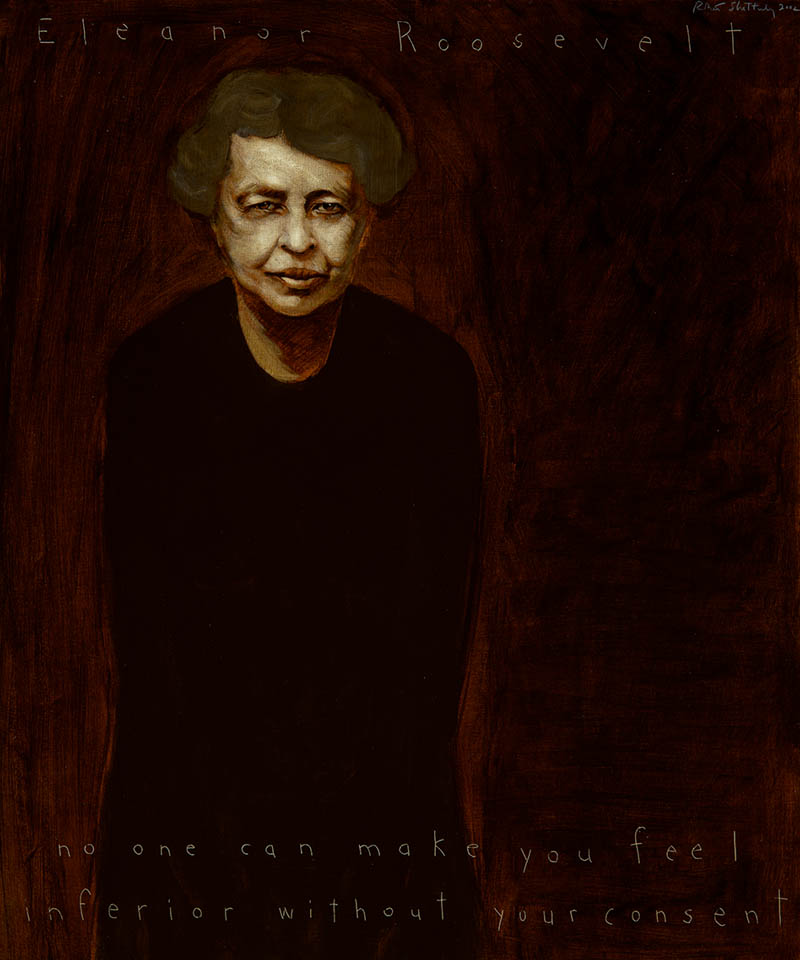
Eleanor Roosevelt
Humanitarian, Social Reformer : 1884-1962
“No one can make you feel inferior without your consent.”
Biography
The niece of the former president, Theodore Roosevelt, Eleanor Roosevelt was born in New York City, the daughter of a society beauty and her adored, but detached, father. As a young woman she seemed to prefer service as a volunteer in a Settlement House to the usual diversions of her social class.
In 1905 she married a distant cousin, Franklin Roosevelt. The couple had a large family, which Eleanor raised. In 1921, Franklin contracted polio and struggled with the disability for the rest of his life. With her encouragement, Franklin returned to politics, becoming, first, Governor of New York and, in 1933 when the country was paralyzed by economic depression, President.
Although her husband’s position provided her with a platform not available to most reformers, Eleanor Roosevelt’s use of her opportunities to promote better housing, more humane working conditions and racial justice was distinctly her own. She wrote a daily newspaper column, spoke on the radio, and traveled the country to observe and report about the plight of the forgotten poor. During World War II she made many trips overseas on behalf of her country and, at war’s end and after the death of her husband, she was a delegate to the United Nations. In 1946, she was named chairman of the UN´s Commission on Human Rights.
Eleanor Roosevelt’s efforts to help the powerless often invited scorn and cruel mockery from those who did not share her vision of social justice. She wrote in her newspaper column, “My Day,” in 1937: “Without equality there can be no democracy.” When equality’s enemies ridiculed her activism, she said, “Do what you feel in your heart to be right—for you’ll be criticized anyway.”
Programs
Americans Who Tell the Truth (AWTT) offers a variety of ways to engage with its portraits and portrait subjects. Host an exhibit, use our free lesson plans and educational programs, or engage with a member of the AWTT team or portrait subjects.

Education
AWTT has educational materials and lesson plans that ask students to grapple with truth, justice, and freedom.

Exhibits & Community Engagement
AWTT encourages community engagement programs and exhibits accompanied by public events that stimulate dialogue around citizenship, education, and activism.